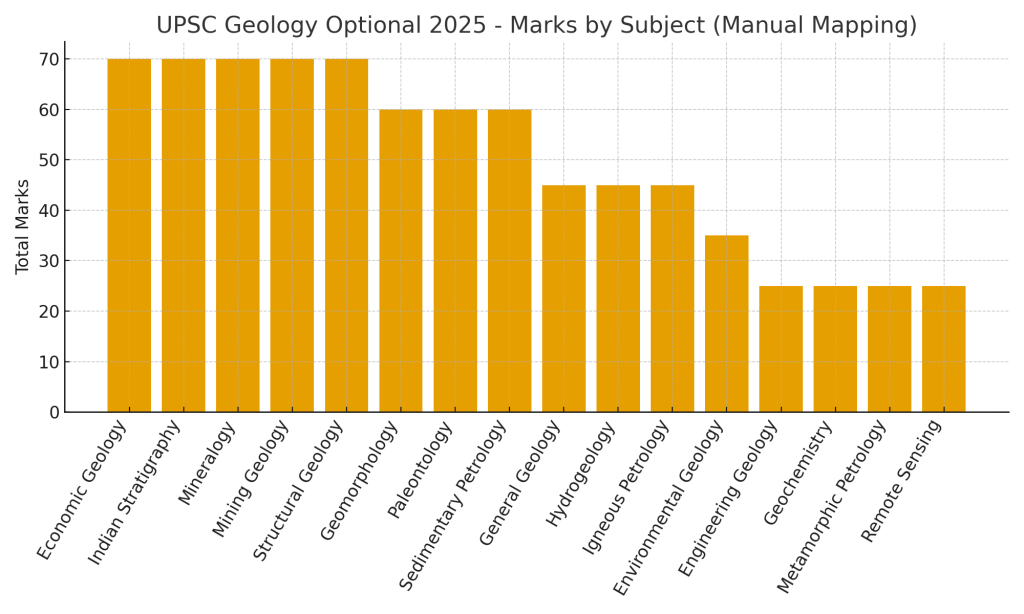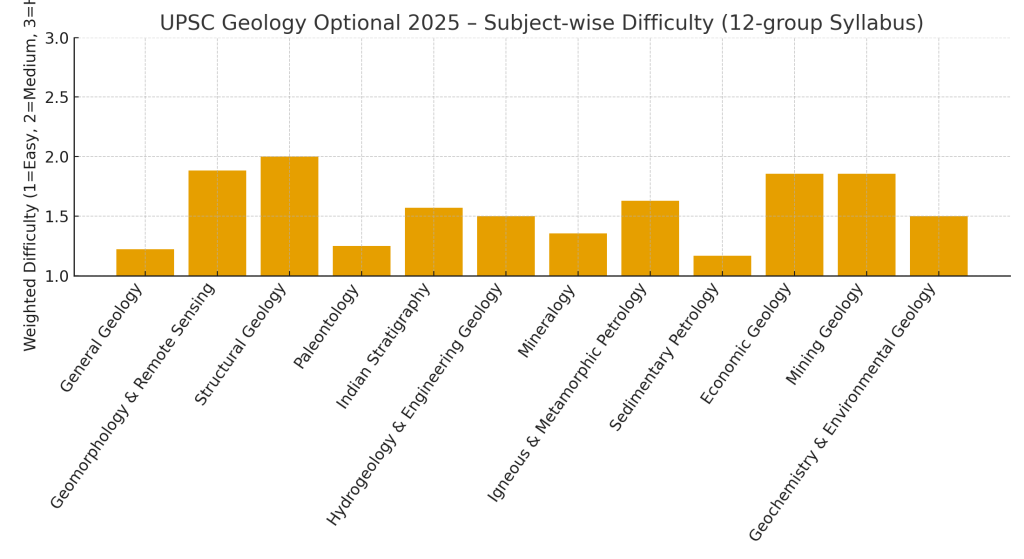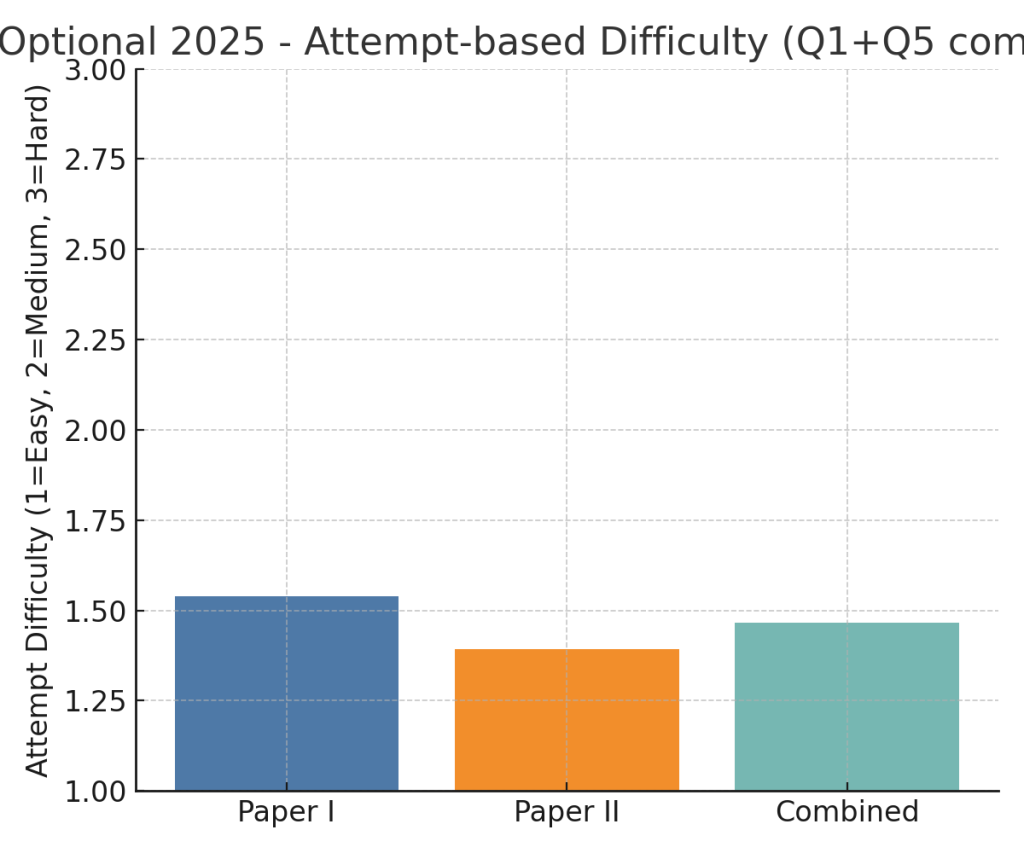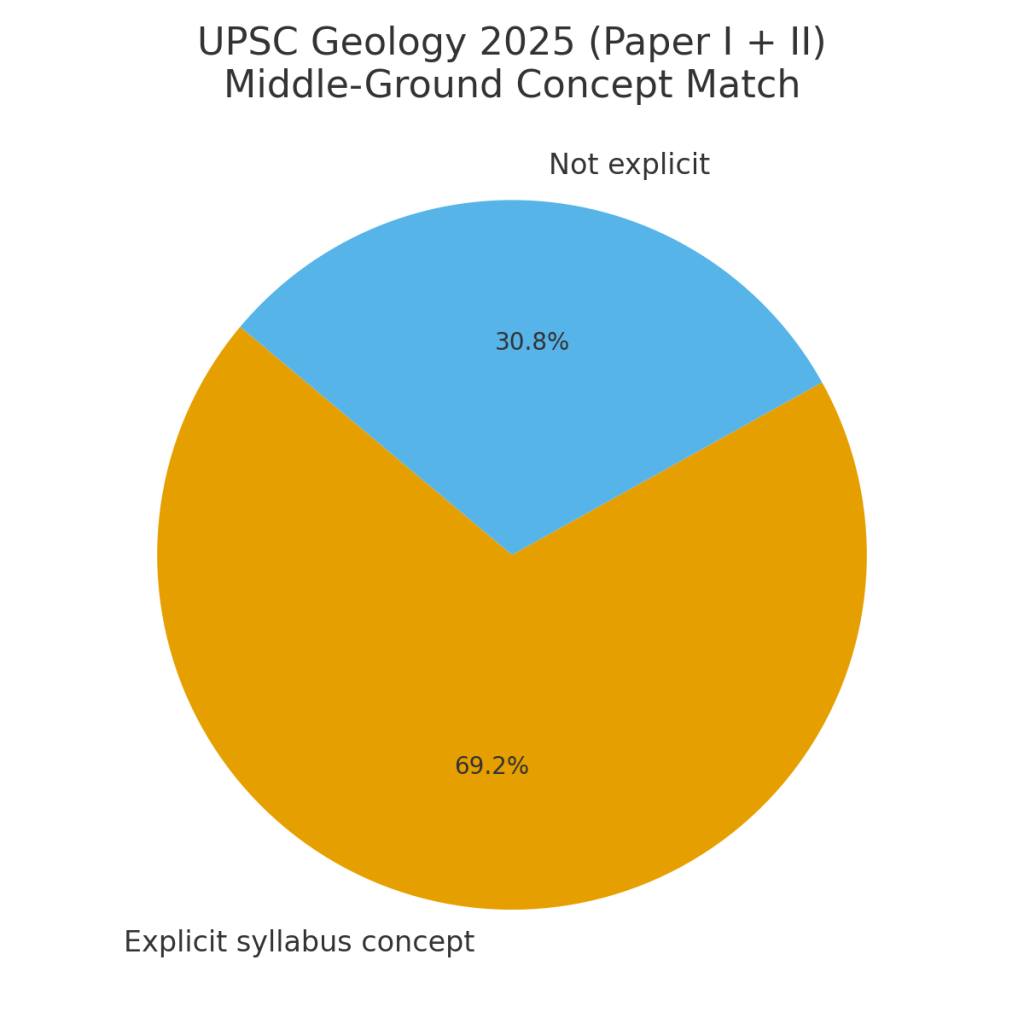Exam Date: Sunday, 31 August 2025
The 2025 Geology Optional papers followed the standard UPSC structure of two papers (Paper I and II), each divided into Section A and B, with Q1 and Q5 compulsory. Students had to attempt five questions in total (250 marks), ensuring balance between both sections.
Our analysis of the papers, mapped carefully against the official UPSC syllabus, highlights the following key takeaways for future aspirants:
- Balanced Coverage Across the Syllabus
- Questions spanned all major areas of the syllabus, ensuring no subject could be safely ignored.
- Both fundamental topics (e.g., Continental Drift, GPS, Microfossils, Petrology phase diagrams) and applied/Indian geology (e.g., Delhi Supergroup, Spiti Basin, Pb–Zn deposits, KG Basin) featured prominently.
- Weightage by Subject
- When regrouped into the 12 official syllabus categories, the weightage was broadly uniform: most major subjects carried ~60–70 marks each.
- This reflects UPSC’s design choice of ensuring balanced representation, rather than concentrating marks heavily in only a few areas.
- Future candidates should therefore treat all subjects as equally important from a marks perspective, with no area being “low priority.”
- Difficulty Profile
- Marks-weighted difficulty averaged ~1.5 on a 1–3 scale (1 = easy, 2 = medium, 3 = hard).
- Paper I leaned slightly tougher (~1.54) than Paper II (~1.39), largely due to Structural and Engineering Geology questions.
- Overall, a well-prepared student could expect a moderate paper with a few tricky concepts (e.g., sheath folds, reserve estimation, thrust geometries).
- Attempt Strategy Matters
- Because only five questions out of eight are attempted, students can strategically avoid the toughest questions.
- Future candidates should therefore prepare across the syllabus but practice identifying safer scoring questions quickly under exam conditions.
- Overall Message to Students
- The 2025 paper reinforced UPSC’s approach of testing breadth + depth: rewarding both conceptual clarity (easy factual questions) and analytical skills (applied/interpretive questions).
- Success lies in:
- Covering all grouped syllabus areas,
- Practicing diagram-based answers (structural geology, petrology, geomorphology), and
- Developing choice-making skills to maximize scoring by avoiding the hardest options.

IFOS 2025 Crash Course
Geology Crash Course brought to you by Planet Geology. It is the most successful Geology optional crash course in India with every secong IFoS Geology ranker being a planet geology student.
Contact: support@planet-geology.com



